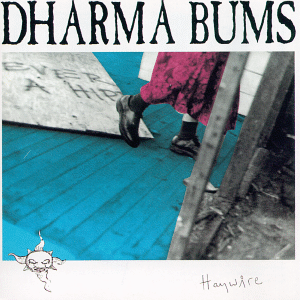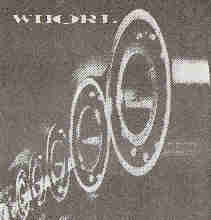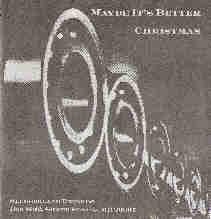
Dharma Bums - Haywire
1988
Contrary to popular belief, few '90s bands actually sounded like Pavement or Sebadoh. Sure, many recorded under the assumption that a recording budget had no correlation to -- and was perhaps even detrimental to -- good music, but the true source of all '90s bands was in fact R.E.M. This truth is obscured by the fact that R.E.M. had entered the '90s as something of an embarrassment, a reminder of alt-rockers' tree-hugging days spent thinking that maybe 10,000 Maniacs actually could solve the homeless problem with a hit song. Worse still, on their 1994 misfire Monsters, R.E.M. offered proof of their own irrelevancy by plagiarizing the genre that supplanted them, three long years after Nirvana and the Smashing Pumpkins heralded the new sound of a more angry, disillusioned generation.
But in 1988, R.E.M was still king. The Dharma Bums, although legendary in their hometown of Portland, Oregon, possessed neither the charm or media savvy that R.E.M. so effortlessly mutated into commercial stardom. That didn't stop the Bums from releasing two decent albums of what critics were then accurately calling "college rock" -- accurate, because absolutely no one else was listening to it. Still, the Dharma Bums' debut did produce one great song. The effortlessly brilliant "Haywire" stands as one of the most appealing R.E.M. ripoffs of the late '80s, an era that hardly had a shortage of them. The chiming guitar arpeggios and no-nonsense drumming is an easy enough feat to replicate, but what amazes still is the way in which Bums' singer Jeremy Wilson captures Stipe's ability to mix mumbled, vaguely poetic lyrics into a beguiling confection that pulls the listener in like a beautiful girl whispering at you across the table.
R.E.M. was influential in many ways, but Stipe's lyrical equivocacy was ultimately the band's most important innovation. The cryptic song titles and lyrics of both Pavement and Guided by Voices is undoubtably a testament to R.E.M.'s lingering fingerprints, even if neither was quick to admit it. In fact, when Pavement did finally acknowledge R.E.M.'s influence, my friends and I must have breathed a sigh of relief. "Okay," we thought, "I guess it's okay that I know every word of 'It's the End of the World as We Know It' after all." In 1988, the Dharma Bums wouldn't have been embarrased though. They'd ingested the R.E.M. formula so well that they could regurgitate it into an accidental masterpiece, a song from an era before R.E.M. could do no wrong.



